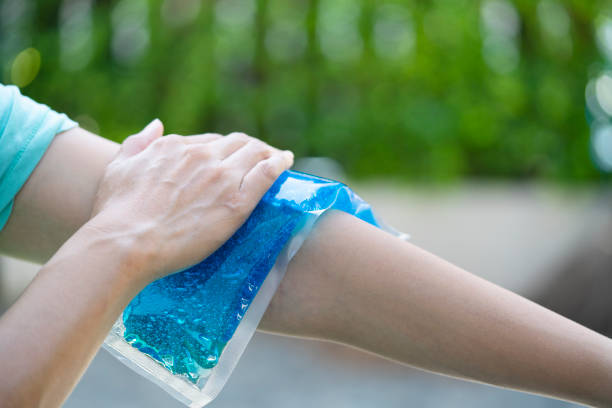
Summer heat waves pose health hazards for individuals without air conditioning, but experts say there are a number of simple strategies to battle the heat when temperatures increase. Stock Studio X / Getty Photographs People around the nation are seeking for ways to remain cool due to widespread heatwaves. Heat exhaustion and heat stroke are more likely to occur when summer temperatures are high. If you do not have air conditioning, there are a number of other ways to stay cool.
With heat waves generating record temperatures around the nation, you may be wondering how to safely remain cool this summer, especially if your air conditioner isn’t working.
In order to help you battle the heat, Healthline spoke with medical professionals who shared their five favourite ways to stay cool when the summer sun becomes unbearable.
Here is what they recommend.
1. Discover the Great Outdoors

Avoiding the heat entirely by remaining indoors with appropriate ventilation is one of the greatest methods to stay cool.
“If you must go outside, limit your exposure to the heat by taking regular indoor or air-conditioned breaks. Contact your local community centres or lawmakers for a list of cooling facilities in your area if you do not have air conditioning during these periods, said Dr. Frederick Davis, associate chair of Northwell Health’s Long Island Jewish (LIJ) Medical Center, to Healthline. Visiting a mall, library, movie theatre, or restaurant are additional opportunities to spend a few hours in air-conditioned environments.
Additionally, Dr. Bayo Curry-Winchell, regional clinical director at Carbon Health, advises that if you participate in indoor activities to escape the heat, you should obey COVID-19 standards and consider being vaccinated.
“While returning to a more regular life, it is crucial to remember that COVID is still a factor, and we must avoid its spread so that it does not result in more severe sickness… “This will provide a layer of protection, whether indoors or outdoors, to keep you and your family safe as you enjoy the summer’s pleasures and activities,” she said.
2. Maintain the coolest dwelling possible
If you lack air conditioning, you can keep the sun from warming your home by closing the windows and curtains during the day and opening them at night to let in cooler air.
Curry-Winchell added, “Avoid turning on the oven or other equipment that may raise the indoor temperature.”
3. Always bring water with you
According to Davis, the body can easily lose water through perspiration when exposed to extreme temperatures. “Because of this, one can dehydrate rather quickly when exposed to severe temperatures over an extended length of time. It is essential to carry water with you… “Drink enough water to replenish any fluids lost due to hot exposure,” said Davis. Curry-Winchell adds that adequate hydration can help prevent heatstroke and heat exhaustion. “If you are thirsty, you are typically dehydrated. “I suggest drinking water even if you’re not thirsty,” she remarked.
4. Provide cold compresses
If you feel your body temperature rising, Curry-Winchell recommends administering cold compresses or ice packs to important body areas, such as the neck and wrists. However, it is crucial to avoid applying ice directly to the skin, as this might induce ice burn. Use a layer of clothing or a towel to separate your skin from the cold source. “You can also take a cool shower or bath to cool off, but avoid quick temperature changes,” she advised. “A sudden drop in body temperature might be hazardous.”
5. Dress appropriately and use sunscreen
On warmer days, wear loose, lightweight, and light-colored apparel. White and light hues reflect the sun’s rays, but dark colours absorb heat, according to Curry-Winchell. And be careful to apply sunscreen to any unclothed regions of your body before going outside. “UV rays can penetrate automobile windows even if you’re merely driving,” Curry-Winchell added.
Also Read: 2022 Might be the Warmest Year




